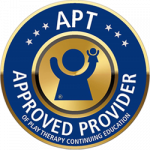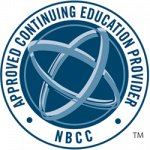TRAINING DESCRIPTION
This play therapy training is offered Live In-Person for contact hours and Virtual via Zoom Platform for non-contact hours.
Play therapists face complex ethical dilemmas involving both children, their guardians, and other caregivers. Moral decision-making models; considerations, goals, and models for inclusion, diversity, and equity; research; and APT publications will be applied to ethical vignettes experienced in play therapy practice. With an advocacy role in mind, participants will apply play therapy best practices with a goal of supporting the ongoing growth and development of children in play therapy. Participants will select from five moral decision-making models to apply to their personal play therapy practice. Participants will apply their chosen moral decision-making model; incorporate three considerations, three goals, and models for inclusion, diversity, and equity; APT publications, Play Therapy Best Practices© and Paper on Touch©, along with research to 15 play therapy vignettes for open discussion. Special emphasis will be given to the following areas in the play therapy vignettes: confidentiality and disclosure to guardians; considerations before touch is implemented as a part of treatment; coordination of care with other professionals; providing services to multiple family members; guardians involved in high conflict divorce; differing values and biases of guardians and children in play therapy regarding inclusion, diversity, and equity; and telehealth in play therapy.




